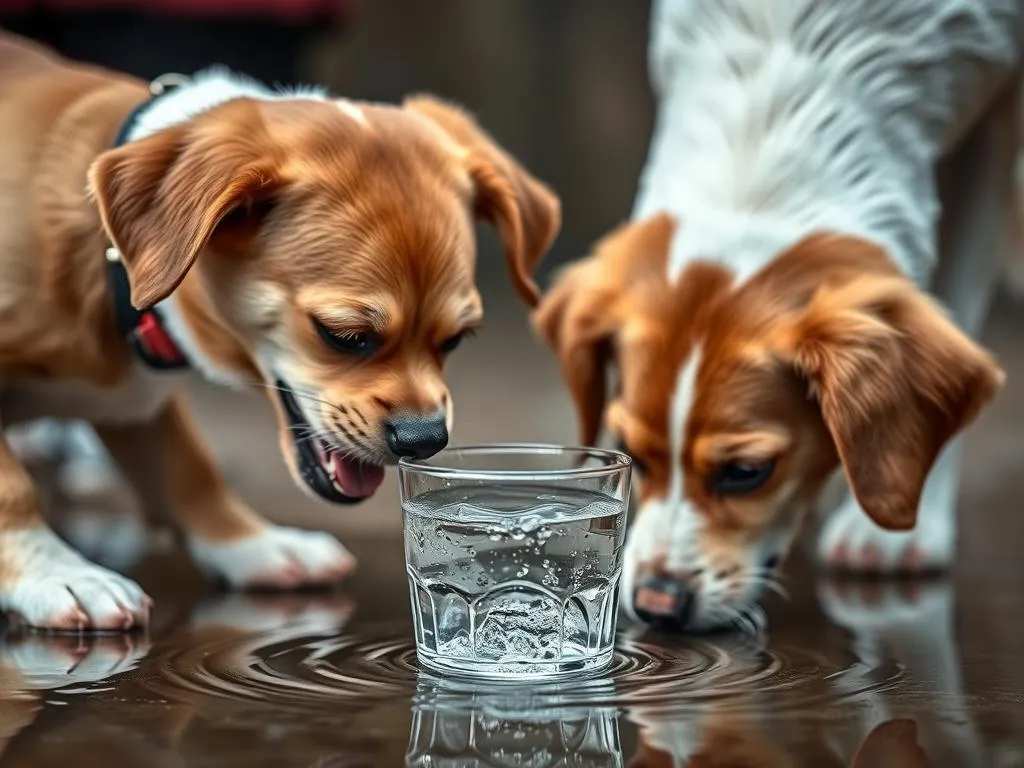
Introduction
When it comes to dog health care, the focus often shifts to nutrition, exercise, and regular vet visits. However, one crucial element that can significantly impact your furry friend’s well-being is the quality of water they consume. Water is an essential part of a dog’s diet, playing a vital role in digestion, nutrient absorption, and overall health.
Among the various types of water available, hard water has raised questions among pet owners. But what exactly is hard water, and can dogs drink hard water without adverse effects? This article delves into the implications of hard water on canine health, providing insights that every dog owner should know.
Understanding Hard Water
What is Hard Water?
Hard water is water that contains high levels of dissolved minerals, primarily calcium and magnesium. These minerals can accumulate in water supplies, leading to higher concentrations that vary by region. In contrast, soft water has lower concentrations of these minerals, often treated to remove them.
Sources of Hard Water
Hard water typically stems from various sources, including:
- Geological formations: Areas with limestone or chalk deposits tend to have harder water.
- Municipal water supplies: Some cities deliver hard water straight from the source, impacting household water quality.
- Well water: Groundwater sources can also be high in minerals, especially in rural regions.
Geographically, regions like the Midwest in the United States and certain parts of Europe frequently report higher levels of hard water.
Effects of Hard Water on Dogs
Nutritional Impact
Minerals in hard water can have both benefits and risks for dogs. On the one hand, calcium and magnesium are essential nutrients that contribute to bone health and metabolic functions. However, excessive intake can lead to mineral overload, resulting in complications such as kidney stones.
Health Risks Associated with Hard Water
Dogs consuming hard water may experience various health issues:
-
Digestive Issues: Some dogs may have difficulty digesting the higher mineral content, leading to upset stomachs or diarrhea.
-
Skin and Coat Conditions: Hard water can affect the skin’s pH levels, potentially leading to dryness, irritation, or allergic reactions, which can exacerbate existing skin conditions.
-
Urinary Tract Problems: The minerals in hard water can contribute to the formation of urinary crystals or stones, particularly in predisposed breeds.
Research and Studies
While comprehensive studies on the effects of hard water specifically on dogs are limited, some research suggests a connection between water quality and urinary health in pets. Experts emphasize that more research is needed to fully understand the implications of long-term hard water consumption in dogs.
Assessing Your Dog’s Water Quality
Identifying Hard Water
To determine whether your household water is hard, look for signs such as:
- White, chalky residue on faucets and showerheads
- Soap not lathering well
- Dull or dry fur on your dog
You can also test for water hardness using:
- Test Kits: Available at pet stores or online, these kits can provide immediate results.
- Professional Services: Local municipal services may offer water testing to assess hardness levels.
Evaluating Your Dog’s Reaction
Monitoring your dog’s behavior and health after consuming hard water is essential. Look for signs such as:
- Changes in appetite or drinking habits
- Digestive upset (vomiting or diarrhea)
- Skin irritation or excessive scratching
If you notice concerning changes, consult your veterinarian for advice on water quality and potential dietary adjustments.
Alternatives to Hard Water
Water Filtration Systems
For dog owners looking to improve water quality, various filtration systems are available:
-
Reverse Osmosis: This system removes most dissolved minerals and contaminants, providing softer water that is generally safer for dogs. However, it can be costly and requires regular maintenance.
-
Water Softeners: These systems replace calcium and magnesium with sodium, making water softer. While effective, they may not be suitable for all dogs, especially those on low-sodium diets.
Pros and Cons of Each System
| System Type | Pros | Cons |
|---|---|---|
| Reverse Osmosis | Removes most impurities; better taste | High initial cost; requires maintenance |
| Water Softeners | Reduces mineral content | Can increase sodium levels; not suitable for all dogs |
Bottled Water Options
For convenience, some pet owners opt for bottled water. Recommended brands often include spring water or purified water without added minerals. Be sure to check labels for any additives or sodium content. While bottled water may be more expensive than tap water, it can be a viable alternative for dogs sensitive to hard water.
Recommendations for Dog Owners
Best Practices for Canine Hydration
Providing your dog with fresh, clean water is crucial. Here are some best practices:
-
Daily Water Intake: A general guideline is that dogs should drink about one ounce of water per pound of body weight daily. However, factors like activity level and climate can affect this requirement.
-
Change Water Regularly: Ensure your dog’s water bowl is filled with fresh water at least once a day, and clean the bowl regularly to prevent bacterial growth.
Signs of Dehydration in Dogs
It’s important to recognize the symptoms of dehydration in dogs, which can include:
- Dry mouth and gums
- Lethargy or weakness
- Loss of skin elasticity (skin doesn’t “snap back” when pulled)
To keep your dog hydrated, always provide easy access to water, especially during hot weather or after exercise.
Additional Considerations
Special Needs Dogs
For dogs with existing health issues, such as kidney problems or allergies, the quality of water becomes even more critical. Consult with your veterinarian about suitable water options and any specific dietary needs your dog may have.
Veterinary Insights
Regular check-ups are essential for maintaining your dog’s health. During these visits, discuss your dog’s water consumption and any observed changes in health related to water quality. Vets can provide tailored advice based on individual needs and conditions.
Conclusion
In summary, while dogs can drink hard water, it is crucial to be aware of the potential health implications associated with its consumption. Understanding the composition of hard water, its effects on your dog, and the available alternatives can help ensure your pet remains healthy and hydrated.
Monitoring your dog’s water quality is an important aspect of comprehensive dog health care. By remaining attentive to your dog’s needs and consulting with your veterinarian, you can take proactive steps to improve their hydration and overall health.









